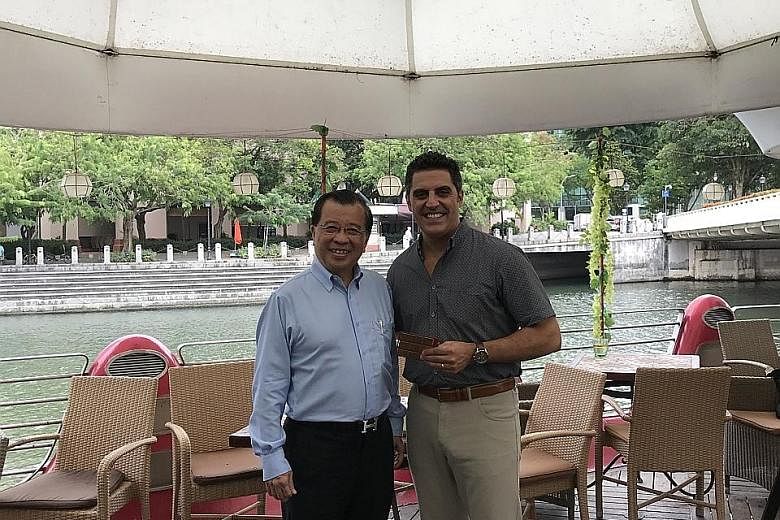A start-up backed by Singapore's Temasek Foundation is trying to make staying cool in the tropics a little greener.
Phononic, a United States-based company, has installed eight of its bladeless fans in Singapore for a trial period before aiming to start commercial sales in the second half of next year, according to chief executive Tony Atti. It is hoping to convince business from riverfront restaurants to amusement parks to switch from traditional outdoor fans, which it says consume more electricity.
How cities choose to cool themselves is becoming an increasingly important climate question because it can drive future energy demand and carbon emissions.
Cooling required about 6 per cent of the world's energy use in 2016 and contributed more than one billion tons of carbon emissions, according to the International Energy Agency (IEA).
That is expected to grow as populations in warmer climates expand and become wealthy enough to afford more cooling. SP Group, the city-state's main utility, has said it sees cooling solutions as "mission critical".
"The growth areas around the tropics have every right to the same quality of life as everyone else," Mr Atti said in an interview. "They shouldn't be put in the awkward position of choosing between comfort or climate."
Space cooling required nearly 2,000 terrawatt-hours of electricity in 2016, according to the IEA. At current trends, that is expected to more than triple by 2050 to 6,205 terrawatt-hours, although improvements in efficiency could cut that to about 3,400, the IEA said in its May 2018 Future of Cooling report.
Phononic is targeting outdoor fans, a small portion of that sector, with a bladeless design that uses between 25 per cent and 60 per cent less electricity than existing models, Mr Atti said.
Phononic's fan, which looks like a high-tech suction cup, pulls up air through a central pump and then circulates it past a series of semi-conductor panels that separate warmer and cooler air, venting the warmer air into the sky and shooting cooler air down towards people underneath.
The company did not provide cost details for the units, but said the competitiveness against current commercial-scale fans would come partly from long-term cost savings by using lower electricity, as well as aesthetics.
Temasek Foundation, the non-profit arm of Singapore's investment firm, invested US$1 million (S$1.4 million) in the company to develop the project, known as Outdoor Active Cooling in Singapore (OACIS), according to an external spokesman for the company.
"OACIS is a disruptive climate control project that demonstrates our commitment to uncovering and supporting innovative technology that further improves the livability conditions and quality of life not just in Singapore but everywhere," Temasek Foundation Ecosperity CEO Lim Hock Chuan said in a statement.

